STAR NAMES
Their Lore and Meaning
(formerly titled: Star-Names and Their Meanings)
by
Richard Hinckley Allen
Dover Publications, Inc., New York
This Dover edition, first published in 1963, is an unabridged and corrected republication of the work first published by G. E. Stechert in 1899, under the former title: Star-Names and Their Meanings.
International Standard Book Number: 0-486-21079-0
Library of Congress Catalog Card Number: 63-21808
Manufactured in the United States of America
Dover Publications, Inc.
31 East 2nd Street, Mineola, N.Y. 11501
CONTENTS
I GRATEFULLY DEDICATE THESE PAGES TO THE MEMORY OF
HUBERT ANSON NEWTON
AND
WILLIAM DWIGHT WHITNEY
SENIOR PROFESSORS IN YALE UNIVERSITY
WHO FIRST ENCOURAGED ME IN MY WORK
R. H. A.
Wilt thou lere of sterres aught?
. . . . . .
Elles I wolde thee have told,
Quod he, the sterres names, lo,
And al the hevenes signes to,
And which they ben.
Dan Geoffrey Chaucers Hous of Fame.
INTRODUCTION.
This list of star-names is published in the endeavor to fill an acknowledged vacancy in our popular astronomical literature. It is not intended for the professional astronomer, who, as a rule, cares little about the old designations of the objects of his study,alphabets, numerals, and circles being preferable, indeed needful, for his purposes of identification. Yet great scholars have thought this nomenclature not unworthy their attention,Grotius, Scaliger, Hyde, and our own Whitney, among others, devoting much of their rare talent to its elucidation; while Ideler, of a century ago, not without authority in astronomy as in other branches of learning, wrote as to inquiry into star-names:
This is, in its very nature, coincidently a research into the constellations, and it is so much more worth while learning their history as throughout all ages the spirit of man has concerned itself with a subject that has ever had the highest interest to him,the starry heavens.
Old Thomas Hood, of Trinity College, Cambridge, in 1590 asserted that they were for instructions sake... things cannot be taught without names; and it is certain that knowledge of these contributes much to an intelligent pleasure when we survey the evening sky. For almost all can repeat Thomas Carlyles lament:
Why did not somebody teach me the constellations, and make me at home in the starry heavens, which are always overhead, and which I dont half know to this day ?
wrote:
He whose roof is heaven, who has no other cover, over whom the stars continually rise and set in one and the same course, makes the beginnings of his affairs and his knowledge of time depend upon them.
So that the shaykh Ilderim well told Ben Hur at the Orchard of Palms:
Thou canst not know how much we Arabs depend upon the stars. We borrow their names in gratitude, and give them in love.
But many star-names supposed to have originated in Arabia are merely that countrys translations of the Greek descriptive terms, adopted, during the rule of the Abbasids, from Claudius Ptolemys 

 , the Great System of Astronomy, of our second century. For it was early in this khalifate,
, the Great System of Astronomy, of our second century. For it was early in this khalifate,
in the golden prime
Of good Haroun Alraschid
(Aaron the Just), that Ptolemys of this issuing during the 16th century. From all these and kindred works have come the barbarous Graeco-Latin-Arabic words that, in a varied orthography, appear as star-names in modern lists.
But there were other purely indigenous, and so very ancient, titles from the heathen days of the Ishmaelites anterior to Mediterranean influences, perhaps even from the prehi toric Arab al Baid, the Arabs of the Desert,these titles generally pastoral in their character, as accords with such an origin. So that we find among them the nomads words for shepherds and herdsmen with their maidens; horses, horsemen, and their trappings; cattle, camels, sheep, and goats; predatory and other animals; birds and reptiles. It should be remembered, however, that the archaic nomenclature of the Arabsarchaic properly so called, for we know nothing of its beginningsin one respect is unique. They did not group together several stars to form a living figure, as did their Western neighbors, who subsequently became their teachers; single stars represented single creatures,a rule that seems rarely to have been deviated from,although the case was different in their stellar counterparts of inanimate objects. Even here they used but few stars for their geographical, anatomical, and botanical terms; their tents, nests, household articles, and ornaments; mangers and stalls; boats, biers, crosses, and thrones; wells, ponds, and rivers; fruits, grains, and nuts;all of which they imaged in the sky.
toric Arab al Baid, the Arabs of the Desert,these titles generally pastoral in their character, as accords with such an origin. So that we find among them the nomads words for shepherds and herdsmen with their maidens; horses, horsemen, and their trappings; cattle, camels, sheep, and goats; predatory and other animals; birds and reptiles. It should be remembered, however, that the archaic nomenclature of the Arabsarchaic properly so called, for we know nothing of its beginningsin one respect is unique. They did not group together several stars to form a living figure, as did their Western neighbors, who subsequently became their teachers; single stars represented single creatures,a rule that seems rarely to have been deviated from,although the case was different in their stellar counterparts of inanimate objects. Even here they used but few stars for their geographical, anatomical, and botanical terms; their tents, nests, household articles, and ornaments; mangers and stalls; boats, biers, crosses, and thrones; wells, ponds, and rivers; fruits, grains, and nuts;all of which they imaged in the sky.
They had, too, still another class of names peculiar to themselves, such as Al  aidak, Al Sim
aidak, Al Sim , Al Suh, respectively the Trusted One, the Lofty One, the Neglected One; their Changers, Drivers, Followers, and Wardens; their Fortunate, or Unfortunate, Ones, and their Solitary Ones, etc. None of these early asterisms, however, were utilized by the scientific Arabians, but, with their titles, became merely interesting curiosities to them, as to us. These were known as of the Arabs, while Ptolemys figures were of the astronomers," a distinction maintained in this book by the use of Arab or Arabic for the first, and Arabian for the last. The Persian astronomical writer, the dervish Abd al Ra
, Al Suh, respectively the Trusted One, the Lofty One, the Neglected One; their Changers, Drivers, Followers, and Wardens; their Fortunate, or Unfortunate, Ones, and their Solitary Ones, etc. None of these early asterisms, however, were utilized by the scientific Arabians, but, with their titles, became merely interesting curiosities to them, as to us. These were known as of the Arabs, while Ptolemys figures were of the astronomers," a distinction maintained in this book by the use of Arab or Arabic for the first, and Arabian for the last. The Persian astronomical writer, the dervish Abd al Ra mn Ab al
mn Ab al  usain, now better known as Al Sufi,964, in his Description of the Fixed Stars; Kazwini following, three centuries later, with the same expressions.
usain, now better known as Al Sufi,964, in his Description of the Fixed Stars; Kazwini following, three centuries later, with the same expressions.
The various Arabic titles that we see applied to a single star or group, and the duplicate titles for some that are widely separated in the sky, apparently came from the various tribes, each of which had to a certain extent a nomenclature of its own.
The rest of our star-names, with but few exceptions, are directly from Greek or Latin originals,many of these, as is the case with the Arabian, although now regarded as personal, being at first only adjectival or merely descriptive of the stars position in the constellation figure; while some are the result of misunderstanding, or of errors in translation and oftrepeated transcription. But these are now too firmly established to be discontinued or even corrected.
Vergil wrote in the 1st Georgic:
Navita turn stellis numeros et nomina fecit;
and Seneca, the traditional friend of Saint Paul, in his Quaestiones Naturales:
Graecia stellis numeros et nomina fecit;
both of these heathen authors almost exactly following the words of the sacred psalmist, who, at least four hundred years before, had sung:
He telleth the number of the stars;
He giveth them all their names,
and of the prophet Isaiah:
He calleth them all by name.
While Senecas statement may have some foundation, and Vergils assertion as to the sailors influence in star-naming may be true in part, yet for most of this we should probably look to the Desert, where the stars would be as much required and relied upon for guidance as on the trackless ocean, and so necessarily objects of attentive interest and study. Indeed, Mu
Next page







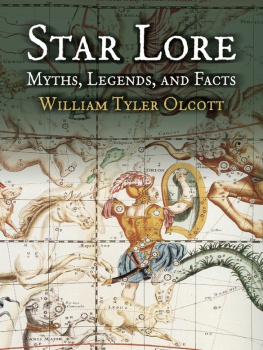
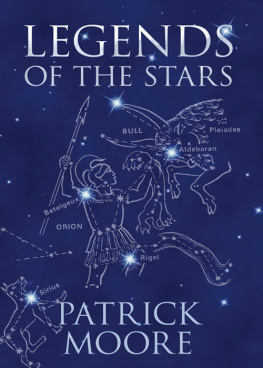
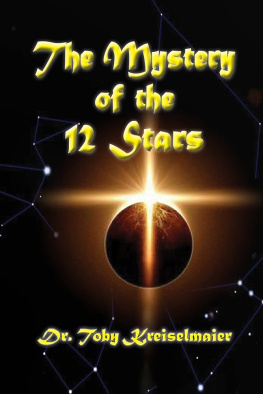


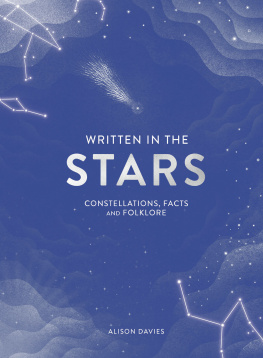


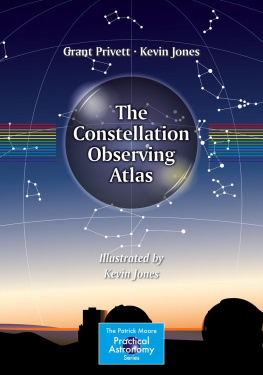
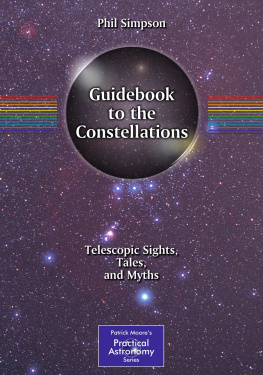



 , the Great System of Astronomy, of our second century. For it was early in this khalifate,
, the Great System of Astronomy, of our second century. For it was early in this khalifate, toric Arab al Baid, the Arabs of the Desert,these titles generally pastoral in their character, as accords with such an origin. So that we find among them the nomads words for shepherds and herdsmen with their maidens; horses, horsemen, and their trappings; cattle, camels, sheep, and goats; predatory and other animals; birds and reptiles. It should be remembered, however, that the archaic nomenclature of the Arabsarchaic properly so called, for we know nothing of its beginningsin one respect is unique. They did not group together several stars to form a living figure, as did their Western neighbors, who subsequently became their teachers; single stars represented single creatures,a rule that seems rarely to have been deviated from,although the case was different in their stellar counterparts of inanimate objects. Even here they used but few stars for their geographical, anatomical, and botanical terms; their tents, nests, household articles, and ornaments; mangers and stalls; boats, biers, crosses, and thrones; wells, ponds, and rivers; fruits, grains, and nuts;all of which they imaged in the sky.
toric Arab al Baid, the Arabs of the Desert,these titles generally pastoral in their character, as accords with such an origin. So that we find among them the nomads words for shepherds and herdsmen with their maidens; horses, horsemen, and their trappings; cattle, camels, sheep, and goats; predatory and other animals; birds and reptiles. It should be remembered, however, that the archaic nomenclature of the Arabsarchaic properly so called, for we know nothing of its beginningsin one respect is unique. They did not group together several stars to form a living figure, as did their Western neighbors, who subsequently became their teachers; single stars represented single creatures,a rule that seems rarely to have been deviated from,although the case was different in their stellar counterparts of inanimate objects. Even here they used but few stars for their geographical, anatomical, and botanical terms; their tents, nests, household articles, and ornaments; mangers and stalls; boats, biers, crosses, and thrones; wells, ponds, and rivers; fruits, grains, and nuts;all of which they imaged in the sky. aidak, Al Sim
aidak, Al Sim , Al Suh, respectively the Trusted One, the Lofty One, the Neglected One; their Changers, Drivers, Followers, and Wardens; their Fortunate, or Unfortunate, Ones, and their Solitary Ones, etc. None of these early asterisms, however, were utilized by the scientific Arabians, but, with their titles, became merely interesting curiosities to them, as to us. These were known as of the Arabs, while Ptolemys figures were of the astronomers," a distinction maintained in this book by the use of Arab or Arabic for the first, and Arabian for the last. The Persian astronomical writer, the dervish Abd al Ra
, Al Suh, respectively the Trusted One, the Lofty One, the Neglected One; their Changers, Drivers, Followers, and Wardens; their Fortunate, or Unfortunate, Ones, and their Solitary Ones, etc. None of these early asterisms, however, were utilized by the scientific Arabians, but, with their titles, became merely interesting curiosities to them, as to us. These were known as of the Arabs, while Ptolemys figures were of the astronomers," a distinction maintained in this book by the use of Arab or Arabic for the first, and Arabian for the last. The Persian astronomical writer, the dervish Abd al Ra mn Ab al
mn Ab al  usain, now better known as Al Sufi,964, in his Description of the Fixed Stars; Kazwini following, three centuries later, with the same expressions.
usain, now better known as Al Sufi,964, in his Description of the Fixed Stars; Kazwini following, three centuries later, with the same expressions.